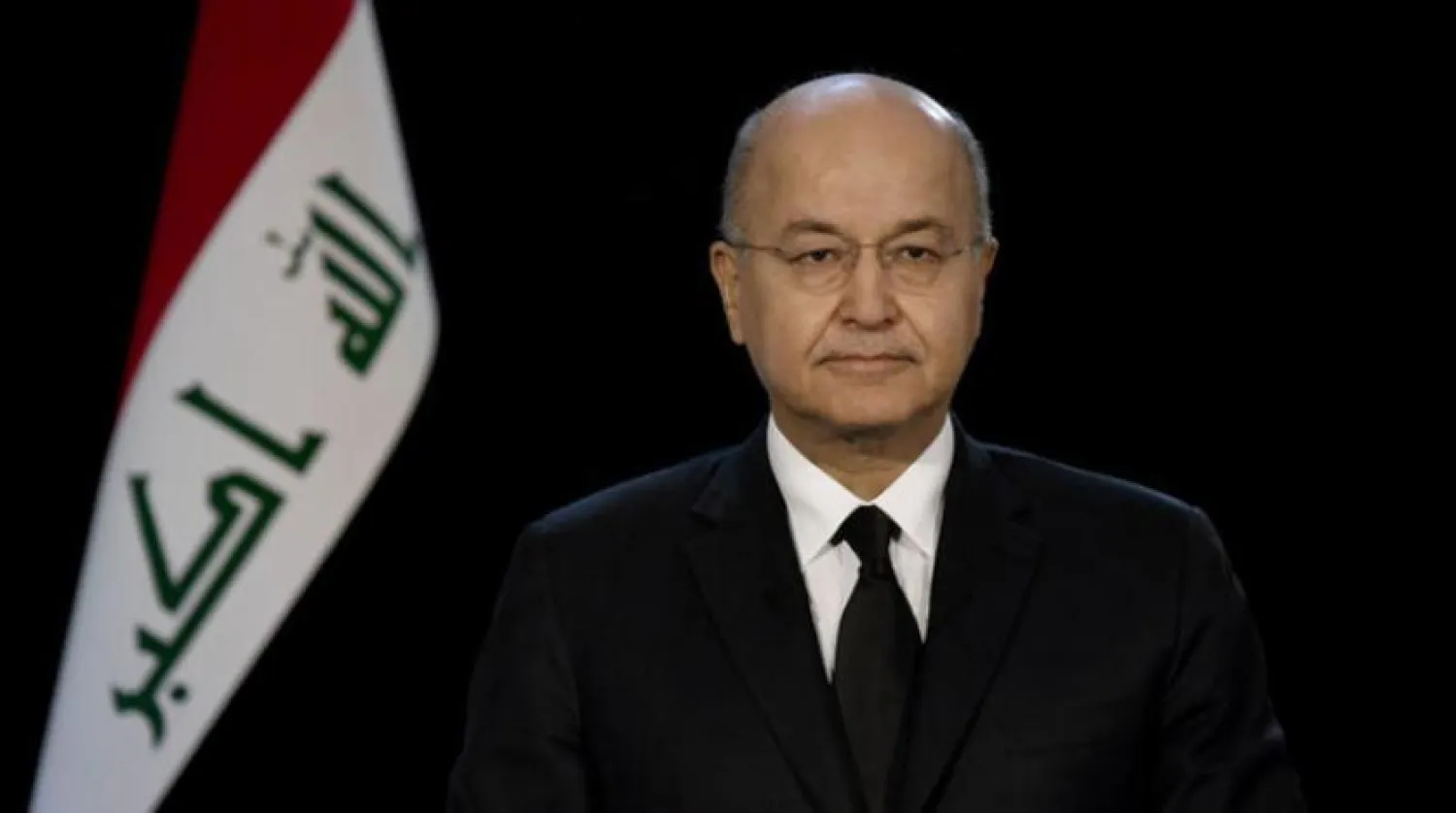Iraqi President Barham Saleh warned against the political deadlock and delay in forming a new government after six months of conducting the early elections.
In a statement marking the 19th anniversary of the US occupation and the overthrow of former President Saddam Hussein's regime, Saleh called for a new political phase.
In a statement distributed by his office, the president cautioned that the continuation of the political crisis might lead the country towards having a different dangerous situation, in which everyone will pay for it.
"On April 9, we recall the fall of the Baath regime that committed the most heinous crimes against Iraqis, squandered the country's national wealth, and caused the waste of human potential of Iraqi youth as a result of engaging in wars and senseless conflicts," read the statement.
Saleh called not to underestimate the significant political transformation achieved after toppling the Saddam regime in 2003.
He explained that there is an urgent need to meet the Iraqis' demands for good governance that can address the flaws, errors, and gaps of the past and deal with structural imbalances of the governance system where there should be genuine and drastic reforms.
All of these urgent tasks can't be postponed, asserted the president.
Establishing good governance will not be achieved without restoring the Iraqi people's confidence in the state as the people are the legitimate source of authority, said Saleh, adding that the Iraqi people's interest should be placed over any other.
"After the past two decades, our country is going through a sensitive juncture amid the political deadlock and the delay in forming a new government," said Saleh, adding that it is unacceptable that more than five months had passed since conducting an early election.
"All political forces have a historical national and moral responsibility to bring all positions together through having further serious and positive dialogues that would help the country to emerge from the current crisis."
Saleh urged political parties to work together to form a new national, sovereign, and independent government that can protect the country's interests and meet the Iraqi people's demands amid the regional and international developments.
Saleh stressed that the months following the October elections are essential for making constitutional amendments that must be initiated in the coming period through national consensus and understanding.
Addressing corruption in the country, the president stated that there should be an equal opportunity for all the Iraqis to build and develop the country, which requires speaking frankly and being honest with having a unified will to make reforms and review the trajectory.









